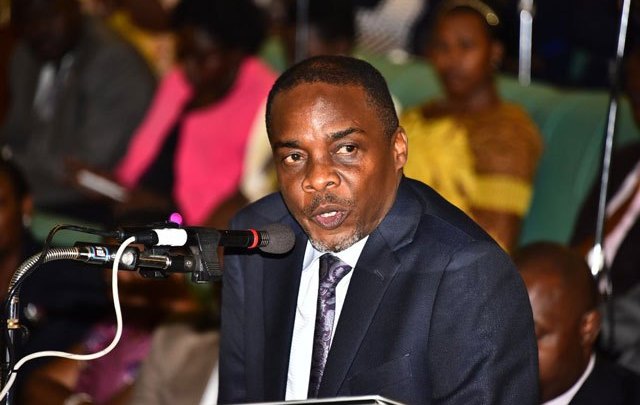Government has clarified that the bills recently introduced to Parliament are not in any way intended to block independent Presidential candidates from contesting against Yoweri Museveni as widely perceived by the public.
The clarification was made today by the Attorney General Mr. William Byaruhanga in a press conference specifically organized to address the same issue.
Byaruhanga said, since the bills were tabled before parliament, there have been a number of misrepresentations on the contents of the bill arising from the failure to carefully read and comprehend the provisions therein, or intentionally made to misinform the public by way of politicking and concocting provisions which do not form part of the bills presented before parliament.
He says, from what was tabled in parliament, there is no single provision that prohibits independent members forming alliances with political parties or organizations as widely perceived by the public, but only regulates the relationship of the independents within the ambits of the Constitution especially on freedom of association.
“Bobi Wine should be thanking me. The bill actually supports him and all other people who want to run as independents because we are actually on their side. How can you people say that we were saying that Bobi Wine or any other independent should not associate with a political organization? Where did you get that from? Mr Byaruhanga queried.
The proposed amendment in the bill states that; “A person elected to parliament as an independent candidate may form an alliance with a registered political party or organization, but the forming of an alliance shall not be construed as joining that political party or organization, within the meaning of subsection (l) (h).”
Mr. Byaruhanga also disputed the impression that the proposed amendments never had provisions that has direct or indirect expression as to early voting by soldiers as presented in the ongoing discussions by various media houses and social media.
He said that is not the case and the soldiers or other security personnel will vote as usual and as provided in the laws governing the elections in Uganda.
Another clarification was made on ‘prohibition of cameras or cell phones at polling stations, and restriction of declaration of election results to the presence of five voters only’ as perceived saying that this also is not what is in the bills that he presented to parliament.
Byaruhanga said the use of cameras and phones are part of a wider process that makes an election free and fair and therefore cannot be prohibited. He however admitted that on the day the bills were presented, his office did not produce adequate copies of the bill as required by law which is largely attributed to the misrepresentation of these facts.
